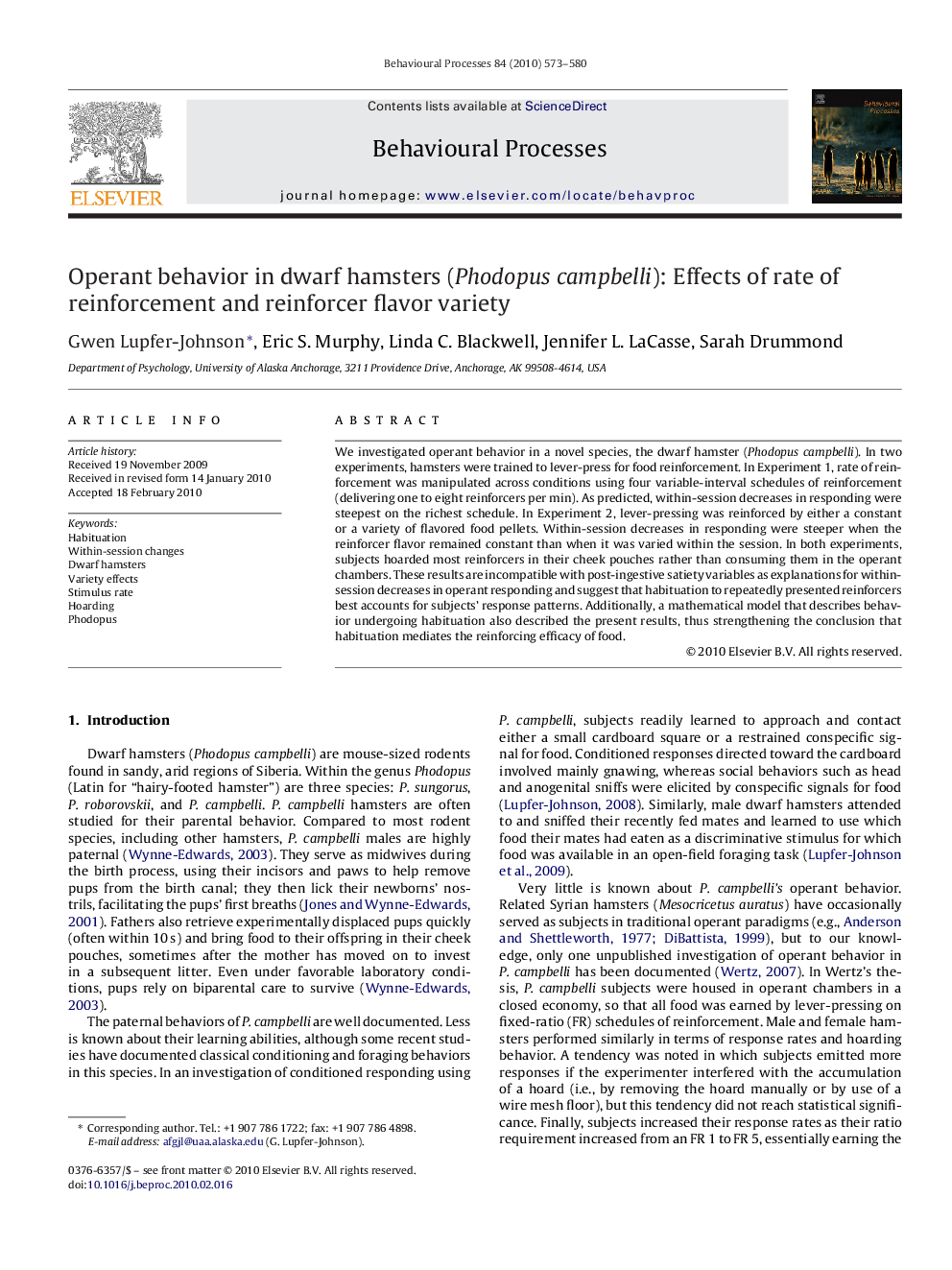| Article ID | Journal | Published Year | Pages | File Type |
|---|---|---|---|---|
| 2427504 | Behavioural Processes | 2010 | 8 Pages |
We investigated operant behavior in a novel species, the dwarf hamster (Phodopus campbelli). In two experiments, hamsters were trained to lever-press for food reinforcement. In Experiment 1, rate of reinforcement was manipulated across conditions using four variable-interval schedules of reinforcement (delivering one to eight reinforcers per min). As predicted, within-session decreases in responding were steepest on the richest schedule. In Experiment 2, lever-pressing was reinforced by either a constant or a variety of flavored food pellets. Within-session decreases in responding were steeper when the reinforcer flavor remained constant than when it was varied within the session. In both experiments, subjects hoarded most reinforcers in their cheek pouches rather than consuming them in the operant chambers. These results are incompatible with post-ingestive satiety variables as explanations for within-session decreases in operant responding and suggest that habituation to repeatedly presented reinforcers best accounts for subjects’ response patterns. Additionally, a mathematical model that describes behavior undergoing habituation also described the present results, thus strengthening the conclusion that habituation mediates the reinforcing efficacy of food.
